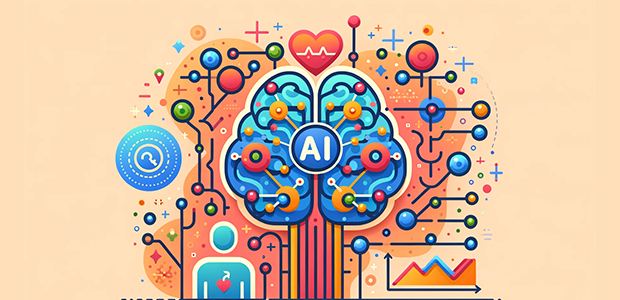
BRAIN.Q’s EMAGINE Study Shows Promise for Stroke Recovery with AI Therapy
BRAIN.Q, an emerging global specialist in AI-driven brain longevity therapeutics, announced promising results from its US multicentre randomised controlled study, EMAGINE.
The study suggested that treatment with its AI-powered electromagnetic field therapy may lead to significant clinical benefits and a substantial reduction in disability following a stroke. These results align with encouraging findings from an earlier pilot trial announced in 2021.
Conducted at 15 leading US academic centres, the trial targeted severe ischemic stroke patients and involved daily therapy sessions in the weeks following the stroke. Although the results did not reach statistical significance, they suggested that patients receiving the treatment were more likely to experience a greater reduction in disability levels compared to those receiving the placebo treatment.
Additionally, findings indicated that actively treated patients were more than twice as likely to be free from disability at three months, enabling them to live independently, return to work, and resume social activities and hobbies.
The promising results were announced today by Dr Jeffrey L. Saver, Director of Stroke at UCLA and the National Co-Principal Investigator for the EMAGINE study, as a Late Breakthrough Science at the European Stroke Conference (ESOC). “In the past several decades we have made tremendous progress in emergency stroke treatments that reduce, but do not fully prevent, brain injury,” says Dr Saver, “but we have had limited success in developing therapies that can meaningfully reverse the life-debilitating disabilities still often caused by stroke. The welcome results from this study suggest there is a chance that even severe stroke patients may be able to regain freedom from disability with this therapy.”
In the trial, the brain stimulation therapy also showed an excellent safety profile, with a limited number of adverse events and with no serious adverse events related to the therapy. BRAIN.Q relies on emerging science suggesting the use of targeted stimulation of brain network activity as a key to maximising the brain’s learning capabilities. The company uses AI to analyse datasets of brain network activity and mirror them back to patients to maximise their recovery.
This is also the first-ever use of a wearable cloud-connected therapeutic system with a severely impaired stroke population, designed to address the patient’s fragmented pathway from hospital to home. The company reports a striking ~90% adherence rate to treatments by the patients, with over 2,500 sessions performed successfully autonomously by the patient and their caregiver at home.
"Millions of stroke survivors worldwide endure life-altering disabilities. The EMAGINE trial results mark a big step towards a therapy that can help these patients reclaim their lives, all from the comfort of their homes,” said Yotam Drechsler, CEO of BRAIN.Q.
The company will be launching this summer a US pivotal trial EMAGINE 2.0, applying the next-generation technology, and is expecting to receive a CE Mark approval later this year.

